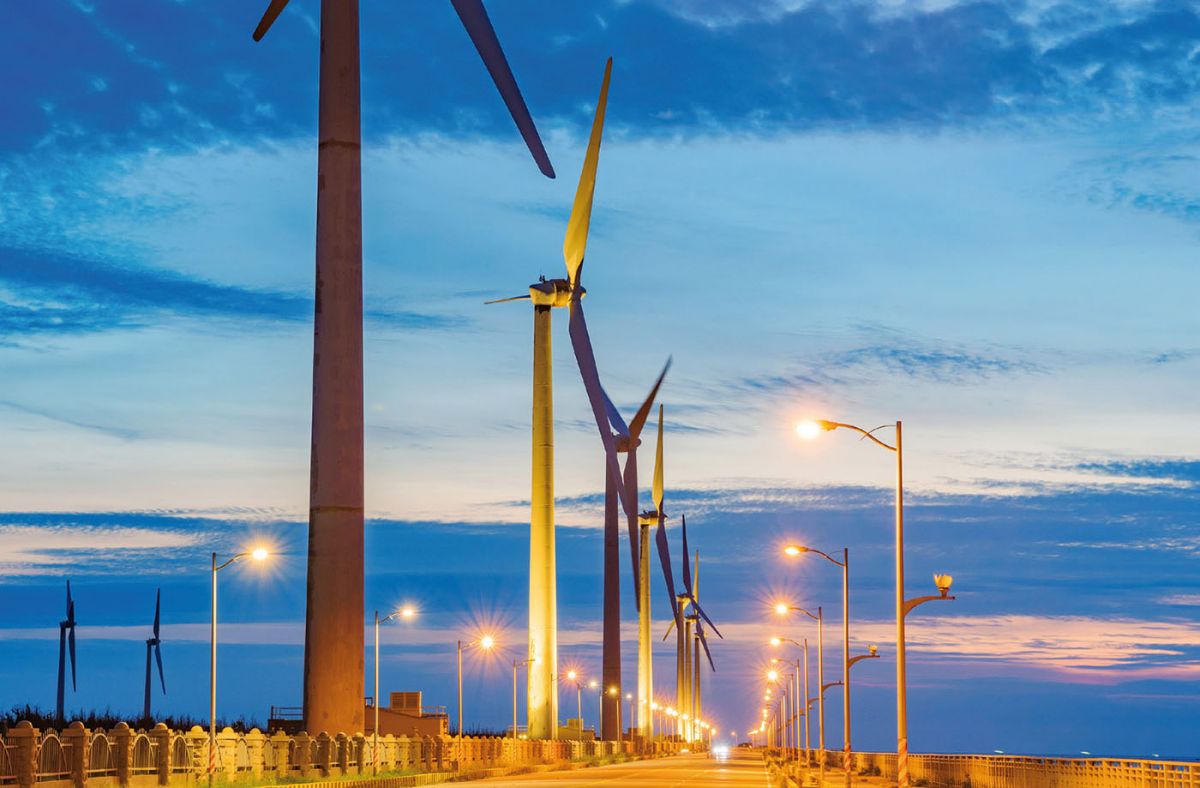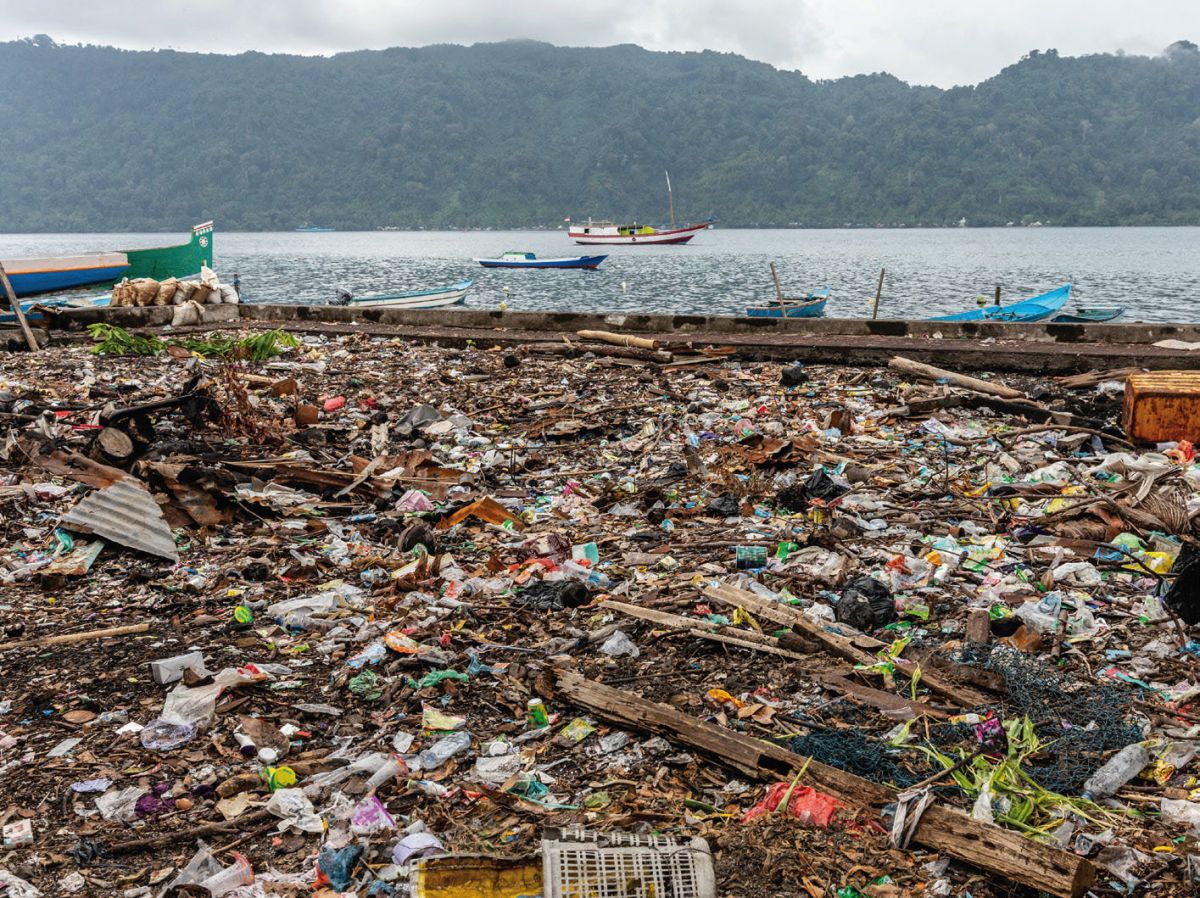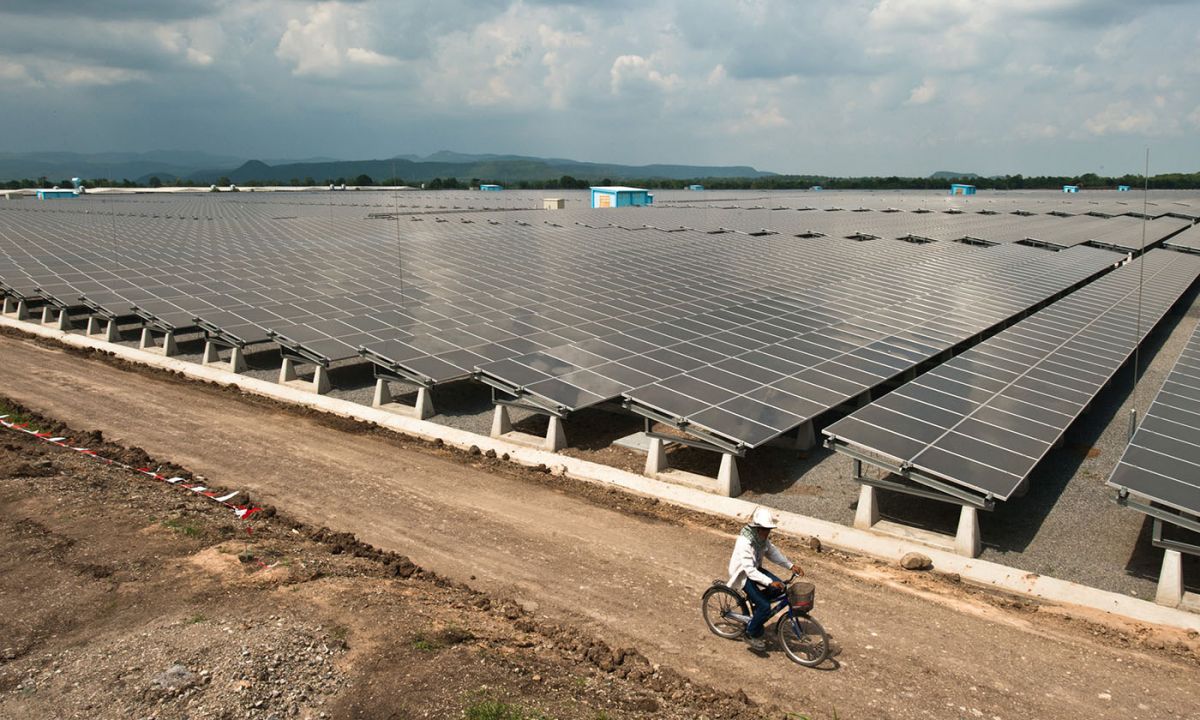Economic growth, social progress and planetary welfare
The call to revisit and assess how economic growth is contributing to well-being is a recurring theme and a very valid one too.1 In the IPSP report, it sits within a specific context, namely, its role in social progress and in ensuring planetary welfare. All three are interlinked not just conceptually but also empirically, as substantial evidence garnered over this century seems to suggest. Their inter-relationship poses opportunities for win-wins as well as challenges that need to be carefully reasoned and mitigated.
On one hand, improvements in life expectancy, real wages, health and poverty reduction have been positively associated with economic growth, with convincing evidence in recent decades (for instance, in the case of poverty reduction in East Asia). On the other hand, the resultant reorganisation and restructuring of economic activity under rapid economic growth, along with the abuse of power under insufficiently regulated markets, have led to increasing inequality, environmental degradation, alienation and undermining of social well-being across and within economies. This has at times led to a questioning of the role of economic growth itself in promoting sustainability and well-being.
Our collegial contribution to the IPSP report aims to move this discussion forward, assessing the conditions under which economic growth can lead to a transformation in the modern day context. A transformation that accords centrality to sustainability and sustainable development, and thus, prioritises reduction in poverty and inequality, while reconciling climate protection with economic growth. Asian economies with success stories of high economic growth (India, China) are faced with developmental challenges of high environmental degradation and the eradication of poverty in all its forms (air pollution in cities in China, India). The key objective here is to assess what are the key lessons to be learnt from past experiences, particularly with regard to large parts of the developing world, including Asia.
Economic growth through the lens of social progress
The history of debates around the relationship between economic growth and social progress is well known and possibly as old as history itself. The idea of social progress is itself a dynamic one, as it is a composite of the many changing dimensions that impact welfare. Often it is centred around a dominant narrative of achieving ‘equity’.
A range of normative criteria can be used to evaluate economic growth from the perspective of social progress: what matters to society is important, as is the question of what distributive principles are to be applied in evaluating the criteria. While what matters to society can be defined in varied ways – ranging from preference satisfaction, happiness, capabilities to function,2 status consumption to the meaning of life – the application of distributive principles to evaluate whether economic growth contributes positively to these is more complicated. Utilitarianism advocates maximizing the good (or discounted utilitarianism) while Rawlsian logic rejects this; applying egalitarian principles raises debates on geographical boundaries and intertemporal dimensions for benchmarking (in)equality; sufficientarianism has implications for where the threshold should be drawn and so on.
A specific concern, which also has implications for several economies in Asia, is the accumulating evidence that socioeconomically deprived groups and sub groups of population especially in developing countries are subjected to environmental injustice, leading to a call for specific focus on these vulnerable populations.
Economic growth from the perspective of well-being, distributive justice and planetary welfare, involves an evaluation of what it can deliver in terms of the quality of economic growth. Economic growth itself is impacted by natural, social, institutional and political capital, and distributional concerns are important to take on board for sustaining economic growth over the long run. Welfare is multidimensional and normative and encompasses values which are easily quantifiable as well as those which are not. Economic growth can impact some dimensions positively and others negatively.
It is important to recognise the links between growth and inequality here. The relationship between inequality and economic growth is relevant for understanding social progress. Addressing inequality through redistributive measures that result in tax distortions can suppress growth in terms of physical capital accumulation. On the other hand, allowing inequalities to persist negatively impacts the accumulation of human capital, especially where there are large numbers of poor; a reality for many Asian economies. Economic growth can increase wealth creation alongside the appropriation of economic rents by wealthy agents, facilitated through political changes. Similarly, technological change can enhance inequality when it favours high skill workers although it is a driver of overall economic growth. Given the reality of path dependencies in social and natural systems and the experience with irreversibilities in nature, economic and social institutions have to strive towards reducing inequalities across time and space. The global commons for instance need to be protected using principles of intergenerational justice.
Economic growth through the lens of sustainability
The issue of sustainability of economic growth, as far as depletion of natural wealth is concerned, evokes considerable consensus in the public domain and brings together varied aspects ranging from the sheer exhaustability of resources, the side effects of producing and using them (deforestation, biodiversity loss, air and water pollution, to name a few highly relevant to developing countries in Asia) to the global concerns of climate change and breaching of planetary boundaries.3 Strong correlations have been observed at the global level between greenhouse gas emissions, economic growth and natural capital depletion. There has been a proliferation of writings in the last half a century, some according centre stage to climate change, and some more directly to fundamental concerns such as the preservation of life support systems including but not only restricted to climate change impacts.
How does limiting the overall scale of activity relate to the scary implications of climate change and for long run sustainability? The evidence here is not that straightforward as outcomes are complex, being dependent on dimensions of uncertainty in both biophysical and human systems. Differential impacts by time and spatial scale complicate matters. Conventional ways of understanding the relationship between economic systems and ecosystems are inadequate. Economic systems and ecosystems are both complex adaptive systems with substantial uncertainties.
Yet, there is still scope to ponder about the relationship. Data indicates that while high growth phases are usually correlated with high rates of environmental degradation (air and water pollution, water scarcity, species extinction, climate change and ozone depletion), higher economic growth can be useful for generating the resources that enable the adoption of cleaner technology and willingness to invest in environment friendly R&D, policies and practises.
For resource-constrained, low and middle income economies in Asia and elsewhere, with multiple pre-existing stressors such as poverty, malnutrition, lack of basic amenities and health care services, dealing with climate change implies new demands on resources and prioritization within a sustainable development agenda. Tackling climate change has become in some sense the single most dominant paradigm for ensuring planetary welfare as evidenced through global initiatives such as the Paris Agreement, its mainstreaming into the United Nations’ Sustainable Development Goals. In a sense, it has played a role in focusing attention of policy makers on the importance of distributional concerns from the perspective of political prudence.
It must be noted though that the fundamentals for operationalization of sustainability remain far from resolved, in spite of recent attempts to articulate these, for instance in the form of SDGs. Social progress for most economies in Asia, involves not just redistribution of an existing pool, but active engagement to improve the livelihoods of specific sections and sub-populations that suffer from multiple deprivations. This exacerbates the distribution issue, and also lends credence to the need for enlarging the size of the cake for several countries in the region. For sustainable human development, both have to go hand in hand.4
Enabling social progress and planetary welfare with economic growth
The evidence so far is undoubtedly in favour of furthering economic growth, in particular for regions and economies where a lack of goods and services persists. An increase in output contributes to increasing the share of those who are deprived, provided of course distribution is a high priority. Evidence also clearly indicates that the challenge lies in integrating dimensions of well-being into an economic growth agenda, and certainly not in arguing for the de-escalation of economic growth itself for Asia for instance. While reducing growth may have an appeal at the global level, its relevance for the region is debatable.
The inadequacies of economic growth as a measure of social progress, and dissatisfaction with GDP in particular,5 has led to the emergence of several alternative measures, including attempts to measure non-marketed aspects of well-being. The main limitations of GDP are its inability to take note of distributional aspects, changes in stocks of natural capital, household production of services and inclusion of certain activities that actually are harmful to certain dimensions of social well-being. The Social Progress Index, Green Net National Product (or extending the national accounts more generally), Measure of Economic Welfare, ecological footprints, and so on have rightly therefore become a part of today’s conversations. A dashboard of indicators need to be generated and used for public policy decision making.
But this needs to be explored further. Notwithstanding which of the philosophical debates can best explain status or conspicuous consumption, from achieving societies to affluent societies to analyses based on the role of the burgeoning middle class, the reality of growing inequalities in the very same economies who aspire to eliminate multiple prevailing deprivations is alarming. Some of the larger economies in Asia today, are grappling with this reality. China and India for instance make interesting contrasts with China moving much faster on poverty eradication but with a relatively higher GINI. In Asia specifically, some countries have experienced economic growth based on their industrial sectors, while for others it has stemmed from the services sector. Both sets have gained from globalization, international trade and capital flows and the availability of technology options, although technological diffusion has not happened at the expected rates always. The point to note is that most economies also put in place policies to regulate openness and guard against market failures and propagation of external shocks. There is a learning that has already taken place in terms of adopting policies to local and regional contexts.
Economic growth is thus not only good or only bad. The how we grow question has gained increasing importance in the context of concerns for good health, air and water pollution, biodiversity conservation, food security, and social metabolism. Growth itself does not directly translate into poverty reduction, much depends on policies, institutions and public investment, while there are examples of good developmental outcomes being achieved with relatively low per capita incomes (for instance in some states in India).
Enabling institutions
Enabling institutions can do much to promote what is seen as ‘socially progressive’ and ‘just’ growth. In fact, recent experiences suggest that the symbiotic relationship between economic growth, distributive justice and planetary welfare can be strengthened for at least some economies. Evidence establishes that differences in institutional quality can explain differences in productivity in the context of Asian economies.
The introduction of market based mechanisms for mitigating climate change is a case in point. A well regulated carbon market, where revenues raised from taxes or an emissions trading scheme are utilised for policies that are targeted towards sectors and sub-populations that may suffer costs from the imposition of such policies promotes well-being in a typical developing economy context. The revenues can be used to reduce distortions in existing taxes or finance new infrastructure and social sector provisioning in health and education. The market design can promote efficiency amongst the economic agents involved, encouraging technological change and resource use efficiency. Success will depend largely on getting the political factors and governance structure right. Environmental policies in general do create winners and losers and specific policies are required to ensure that the livelihoods and consumption of poor and underpriviledged sections of society are not harmed (for instance, the consumption of energy intensive products by the poor when a carbon price is imposed).
Capitalism itself has been credited with enabling innovation, diversity and democratic institutions, when fostered by enabling institutions. In contrast, an absolute focus on the size of the cake alone or ‘growth-focused capitalism’ leads to increased wealth inequality, overuse of natural capital, unrestricted corporate power and too narrow a focus on material consumption. It is how we grow and not economic growth itself that matters.
Relevant indicators for relevant policies
A major need flagged earlier is to effectively measure social progress alongside planetary welfare. Efforts which seek to empirically take forward alternative indicators to GDP such as the wealth as welfare approach, or promote a mix of monetary and physical indicators, have for the most part been limited. Much more can be done to track and measure the dimensions of well-being that are adversely impacted by economic growth in Asia. A set of welfare indicators should be defined which allow policies to be assessed in terms of their contribution to social objectives. Such indicators would help make value judgements transparent in prioritizing action. International and national agencies could help in accumulating evidence and transferring knowledge on these and setting standards for ensuring the engagement of civil society in determining what aspects of welfare matter most for a specific population.
Given the considerable overlap between the determinants of economic growth and the markers for social progress aligning the two in policy-making could be the best way forward for ensuring planetary welfare as well. These include population stabilisation, the accumulation of human capital and education, enabling technological change, and judicious use of resource endowments. Promoting the right actors, institutions and politics such as those which facilitate collective action or enforce individual rights would also be fundamental for ensuring growth with social progress.
The challenge for policy makers is to mitigate the negative effects of economic growth while preserving the positive effects. It must be recognised that social welfare is itself a composite and the social objectives themselves have synergies and trade-offs which public policy has to be sensitive to. Policy that promotes the quality of economic growth, uses it as a means of overcoming trade-offs and mitigating conflicts among these objectives. Increasing public investment (financing investment in health, education, energy, transport through non-distortionary taxes on externalities for instance), an effective environmental policy (Pigouvian taxes for internalising social costs of natural capital depletion, direct restoration of natural capital), international cooperation (to address abusive corporate power through international standards and agreements) and redistribution policies (reduced inequality of opportunity such as inheritance taxation, reduced rent income, enhanced public investment, workplace democracy) are some ways of making more equitable and environmentally sustainable.
Purnamita Dasgupta, Chair in Environmental Economics and Head of Environmental and Resource Economics Unit at the Institute of Economic Growth, University of Delhi; pdg@iegindia.org



